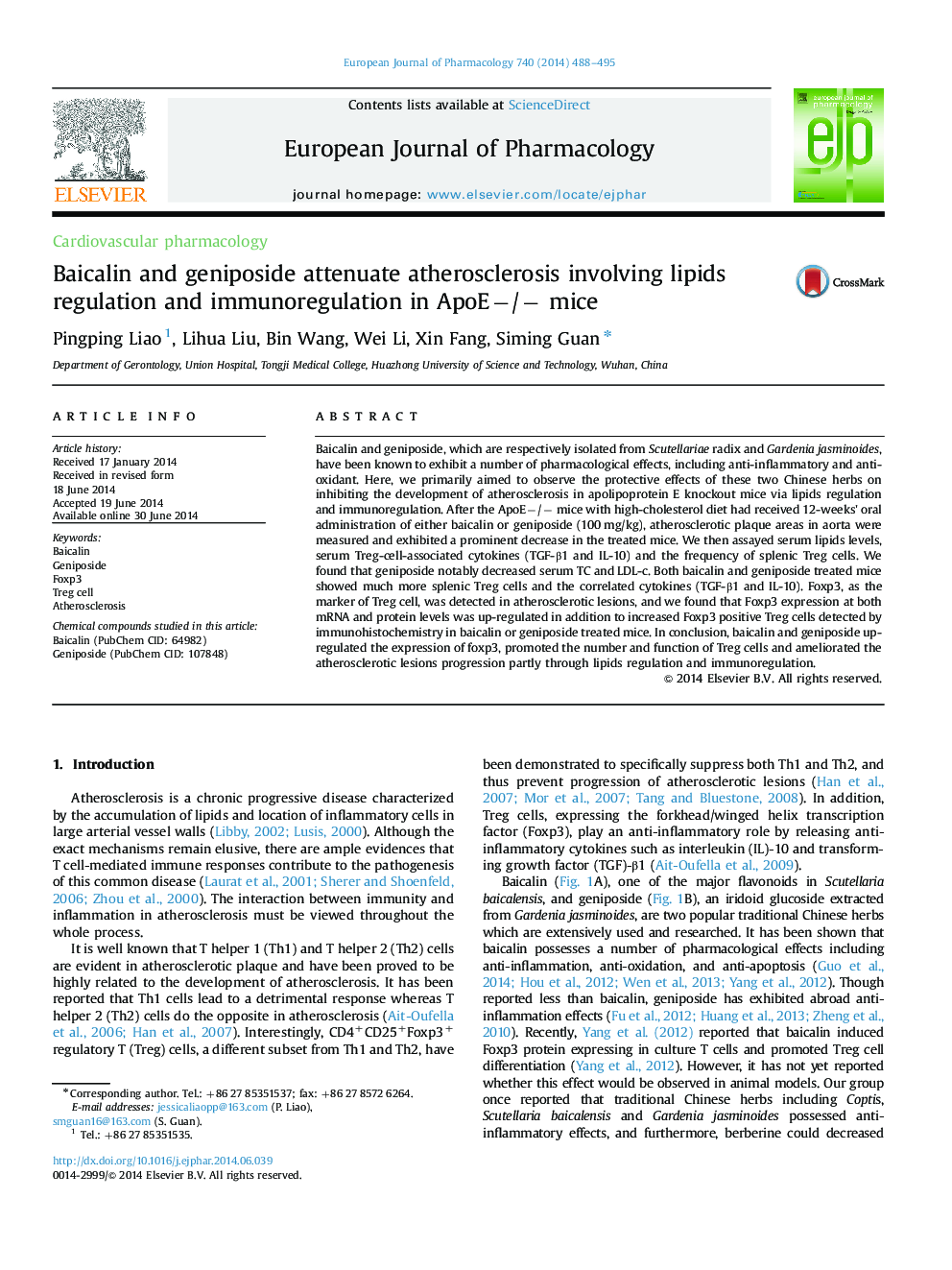| Article ID | Journal | Published Year | Pages | File Type |
|---|---|---|---|---|
| 2531656 | European Journal of Pharmacology | 2014 | 8 Pages |
Baicalin and geniposide, which are respectively isolated from Scutellariae radix and Gardenia jasminoides, have been known to exhibit a number of pharmacological effects, including anti-inflammatory and anti-oxidant. Here, we primarily aimed to observe the protective effects of these two Chinese herbs on inhibiting the development of atherosclerosis in apolipoprotein E knockout mice via lipids regulation and immunoregulation. After the ApoE−/− mice with high-cholesterol diet had received 12-weeks׳ oral administration of either baicalin or geniposide (100 mg/kg), atherosclerotic plaque areas in aorta were measured and exhibited a prominent decrease in the treated mice. We then assayed serum lipids levels, serum Treg-cell-associated cytokines (TGF-β1 and IL-10) and the frequency of splenic Treg cells. We found that geniposide notably decreased serum TC and LDL-c. Both baicalin and geniposide treated mice showed much more splenic Treg cells and the correlated cytokines (TGF-β1 and IL-10). Foxp3, as the marker of Treg cell, was detected in atherosclerotic lesions, and we found that Foxp3 expression at both mRNA and protein levels was up-regulated in addition to increased Foxp3 positive Treg cells detected by immunohistochemistry in baicalin or geniposide treated mice. In conclusion, baicalin and geniposide up-regulated the expression of foxp3, promoted the number and function of Treg cells and ameliorated the atherosclerotic lesions progression partly through lipids regulation and immunoregulation.
